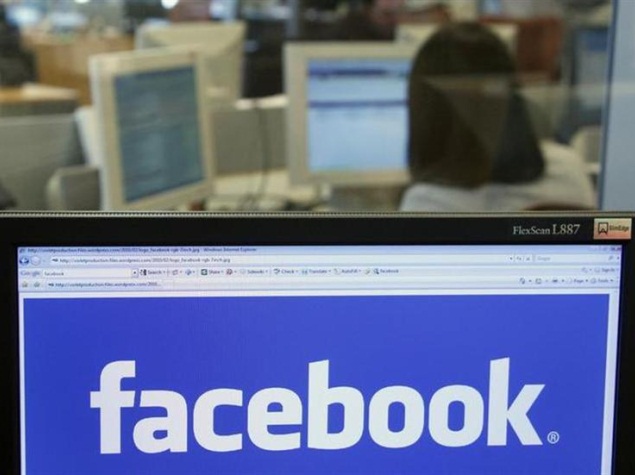- Home
- Social networking
- Social networking News
- Facebook takes page out of Google playbook with Oculus deal
Facebook takes page out of Google playbook with Oculus deal

Does Facebook Inc have Google envy?
The social networking company's $2 billion acquisition of Oculus VR, a maker of virtual reality goggles, took Wall Street and technology observers by surprise, not least because of the hefty price for a company with no real revenue and untested technology.
But Facebook's desire to bet on "the platforms of tomorrow," as Chief Executive Mark Zuckerberg described the deal on Tuesday, also marks a broadening of ambition for a company that has until now focused mainly on bolstering its existing service or defending its turf from immediate threats.
It's a strategy more often associated with Facebook's arch-rival Google Inc , which has established a track record of making early bets on the next big thing. Google acquired the Android software that now powers three out of four smartphones in 2005 when PCs were dominant, and Google currently has projects under way involving self-driving cars and robots.
"It's really the first acquisition of theirs which is really thinking about the future, versus the next wave of products or defensive," venture capitalist Jeff Clavier said of Facebook's deal for Oculus.
"I don't know whether Oculus is as exciting as driverless cars or things like that in terms of impact. But at least it's a future technology that will definitively be mass market at some point," said Clavier, the founder and managing partner of Palo Alto-Calif-based SoftTech VC.
Investors seemed unsure about Zuckerberg's crystal ball. Shares of Facebook were down more than 6 percent at $60.70 in late trading on Wednesday.
(Also see: Facebook to buy virtual reality headset maker Oculus VR for $2 billion)
The deal, which comes less than two months after Facebook announced plans to acquire Whatsapp for $19 billion in cash and stock, raised fears about the beginnings of an unchecked spending spree.
(Also see: Facebook to buy WhatsApp in a $19 billion deal)
"I'd be surprised if a lot of people want to spend serious time with goggles that shut the world out entirely," said industry analyst Roger Kay, who wrote a post on the Forbes website on Wednesday that began "Okay, I'll come right out and say it: Mark Zuckerberg is nuts."
Crystal ball gazing
Detractors warn that Zuckerberg is spending shareholders' cash on a 2-year-old company that's first prototype was infamous for inducing motion sickness, though Oculus says it has largely ironed out the kinks. Though it has distributed some 75,000 development kits to interested developers, it has yet to ship an actual, consumer-ready product.
Facebook will spend $400 million in cash on the deal, with the rest in stock. With Facebook's stock up 25 percent over the past six months, some said it was not surprising that the company was choosing to use its stock to place some bets on the future.
As a percentage of Facebook's nearly $160 billion market value, the Oculus acquisition is not a "bet the company" deal, said Macquarie Research analyst Ben Schachter.
The most surprising thing about the Oculus acquisition was that the buyer was Facebook, and not a hardware company like Apple Inc , said Schachter.
"It's Facebook emphasizing a much broader ambition than people perhaps had realized," he said. Despite some of the market's skepticism, Schachter said he believed Oculus could be a good fit for Facebook's communications services.
"People always underestimate the value of these things when they show they are going to be the winning platform," said Joe Lonsdale, a founding partner of venture capital firm Formation 8, which invested in Oculus.
Until now, Facebook's biggest deals have focused on fortifying or defending its social networking service. Photo-sharing service Instagram and mobile messaging app WhatsApp both competed with key aspects of Facebook, threatening to siphon users away from Facebook's advertising-supported website.
It recently stepped up its investments in artificial intelligence. And Facebook was reported earlier this month to be looking at buying drone company Titan Aerospace for $60 million, as part of an effort to deliver online access to people in under-developed parts of the world.
(Also see: Facebook looking to buy Titan Aerospace for Internet-providing drones: Report)
Google meanwhile, has an entire "Google X" division focused on "moonshot" projects ranging from wearable computers to airborne wind turbines.
Working on far-reaching technology projects is a good way to motivate engineers and to retain employees, said SoftTech VC's Clavier.
And in the fast-moving technology industry, focusing only on today's business can be dangerous.
"As a Larry Page or a Mark Zuckerberg, you have to be paranoid and think about who and what is going to displace you and make you obsolete," Clavier said, referring to Google's chief executive officer.
"You have to build that next thing or you have to buy that next thing before it happens. Because by the time it happens, it's too late."
© Thomson Reuters 2014
Catch the latest from the Consumer Electronics Show on Gadgets 360, at our CES 2026 hub.
Related Stories
- Samsung Galaxy Unpacked 2025
- ChatGPT
- Redmi Note 14 Pro+
- iPhone 16
- Apple Vision Pro
- Oneplus 12
- OnePlus Nord CE 3 Lite 5G
- iPhone 13
- Xiaomi 14 Pro
- Oppo Find N3
- Tecno Spark Go (2023)
- Realme V30
- Best Phones Under 25000
- Samsung Galaxy S24 Series
- Cryptocurrency
- iQoo 12
- Samsung Galaxy S24 Ultra
- Giottus
- Samsung Galaxy Z Flip 5
- Apple 'Scary Fast'
- Housefull 5
- GoPro Hero 12 Black Review
- Invincible Season 2
- JioGlass
- HD Ready TV
- Laptop Under 50000
- Smartwatch Under 10000
- Latest Mobile Phones
- Compare Phones
- OPPO Reno 15 FS
- Red Magic 11 Air
- Honor Magic 8 RSR Porsche Design
- Honor Magic 8 Pro Air
- Infinix Note Edge
- Lava Blaze Duo 3
- Tecno Spark Go 3
- iQOO Z11 Turbo
- Lenovo Yoga Slim 7x (2025)
- Lenovo Yoga Slim 7a
- Lenovo Idea Tab Plus
- Realme Pad 3
- Moto Watch
- Garmin Quatix 8 Pro
- Haier H5E Series
- Acerpure Nitro Z Series 100-inch QLED TV
- Asus ROG Ally
- Nintendo Switch Lite
- Haier 1.6 Ton 5 Star Inverter Split AC (HSU19G-MZAID5BN-INV)
- Haier 1.6 Ton 5 Star Inverter Split AC (HSU19G-MZAIM5BN-INV)







![[Sponsored] Haier C90 OLED TV | Dolby Vision IQ, 144Hz OLED and Google TV in Action](https://www.gadgets360.com/static/mobile/images/spacer.png)









